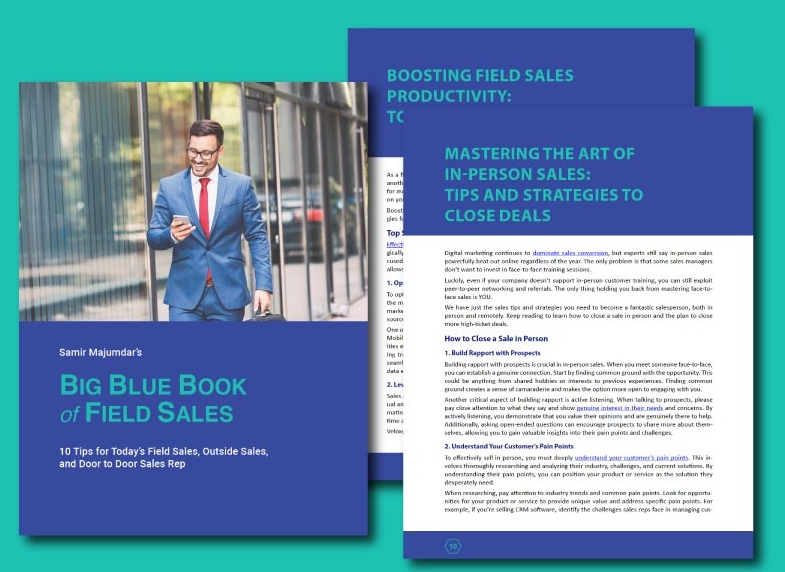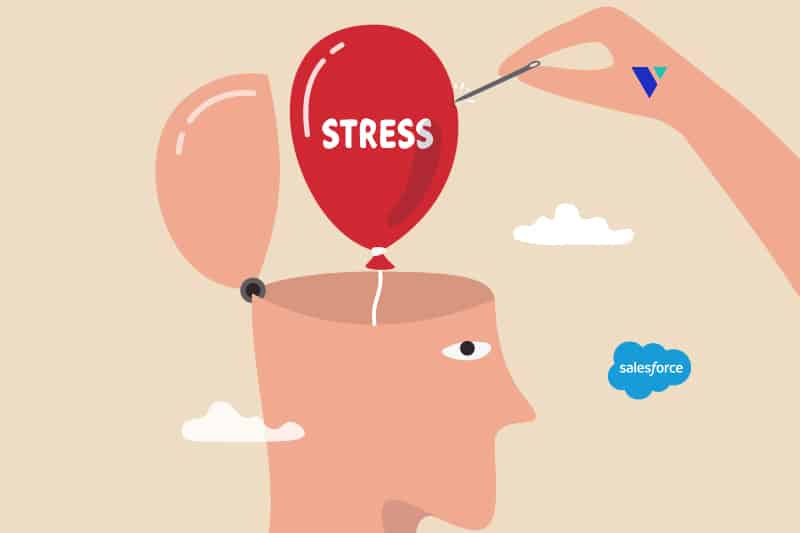
Boost Efficiency and Sales With Salesforce Automation Tools
The 10 Best Salesforce Automation Tools for 2024 (Updated) Exploring the vast potential of Salesforce Automation unveils a transformative approach to boosting sales efficiency and team productivity. By leveraging the strategic integration of Salesforce Automation tools, businesses can significantly enhance their sales operations, leading to accelerated revenue growth and the achievement of quotas. This introduction aims to shed light on
















There are many factors that cause sales stress. Pressure to hit quota. Leads that cancel meetings. Rumors of downsizing or demotions. The list of stress factors is long.
Sales is commonly ranked as one of the most stressful professions in the country. In addition to the intense and competitive work environment, sales reps and managers also have to juggle their work life balance and other commitments.
At Veloxy, we make the life of a sales professional easier. This includes helpful tips on how to manage your stress so you can spend more time closing deals and more time with family and friends.
Here are 10 ways you can manage and reduce sales stress. I’ve placed the tips in chronological order from morning to night.
Go here to learn how Sales AI can make your sales life easier
10 Ways to Manage & Reduce Sales Stress
1. Meditation and Exercise
Tackling sales stress first thing in the morning is a key to success. Nothing works better after you roll out of bed than some sound meditation and exercise.
Meditating is one of the best ways to relax your mind. Plus, concentrating on slow breathing will not only calm you, it will improve your mood for the rest of the day.
After a ten minute meditation, go for a run. While going to the gym is a bit more time-consuming, a nicely paced daily jog outside can give you a terrific sense of accomplishment in the morning.
When you do go to the gym, work with a trainer to set fitness goals. Similar to sales quota, this will also give you a sense of accomplishment to start your day.
2. Eat a Healthy Diet
If you’re an outside sales rep, you’re constantly on the road two to three weeks every month. That means you’re constantly eating out and rushing through meals.
Eating a consistently well-balanced diet will not only help your mood and melt away stress–it will make you look better, too!
Whether you’re a field rep, an SDR, or a sales manager, here’s a list of popular diet tactics to reduce sales stress:
3. Listen to Sales Podcasts
Before we get to reducing sales stress at the office, I have one more stress eliminator to share with you. Choose two to three sales podcasts to regularly listen to in the car, bus, or subway.
Why? In the morning, you’re likely already thinking about meetings, calls, and emails. But what about that next big idea that you’re going to share with the management team?
By discovering and sharing best practice sales ideas talked about on podcasts, you’ll be perceived more highly by your peers, thereby reducing worries around job security and other professional stress factors.
As a matter of fact, this kind of reputation commonly makes its way up the ladder to the CEO. Get proactively pumped and become forward-thinking by tuning into sales podcasts.
4. Focus on 3 Tasks a Day
Now that you’ve arrived at the office, let’s talk about tasks and how they impact sales stress.
Multitasking seems like an impressive trait. But the more you add to your plate, the more stress you’ll add to your mind and body. Therefore, you should focus on one task at a time.
This is sage advice. When speaking with clients, we chose to amend this recommendation to, “Focus on 3 Tasks a Day”.
Why? In addition to furthering your sense of daily achievement, it reduces feelings of dread and worry associated with the next task. The quality of your work will greatly improve, as will your response to your boss asking, “What have you been up to lately?”
Here are a few of our clients favorite task-crushing tips:
5. Find a Balance between Prospects, Leads & Customers
As we shared in our annual State of Field Sales report, the customer experience is the new number one KPI in sales. With that being said, you shouldn’t spend most of your time with prospects and leads.
You and I both know that customers are more likely to buy from you again than a new prospect. Striking a balance between calling prospects and leads with customers will help lower stress levels associated with hangups and rejection.
One other thing to consider is applying your consultative sales approach used with customers to your prospects and leads. When you choose to help before pitching, people are bound to receive you in a more positive manner, thereby reducing sales stress.
6. Trust Your Sales Process
Salespeople can be overwhelmed by many things. One popular stressor is CRM data. The average salesperson has hundreds, if not thousands, of lead and contact records in Salesforce.
Who do I call next? How do I know who is ready to buy? Am I reaching out to the wrong person? Is this the right email address or phone number?
These are all valid and common questions. Fortunately for most salespeople, there is a sales process in place that is begging for their trust. By knowing and understanding the sales process, sales reps can replace questions with well-planned actions.
Here are our clients favorite ways to trust their sales process to reduce sales stress:
7. Take Small Breaks
Have you ever sat down at your desk and not moved for two to three hours? As a salesperson, your answer is more than likely a “Yes.” Note the absence of an exclamation mark.
While the stress and pressure of performance metrics, not to mention the eyes of a micro-manager, may prevent you from taking small breaks, may I suggest you try one thing…
For only one week, take a 10 minute break every hour and a half. Not only will your days fly by, but each time you return to work after the ten minute break, you’ll find yourself relieved, refreshed, and rejuvenated.
Here are our clients favorite ways to reduce sales stress with small breaks in their day:
8. Don’t Take Things Too Personally
Every sales person has faced harsh rejection at some point in their career. “No, now take me off your list and stop bothering me!”
Prospects, leads, and customers are people, too. They experience workplace stress like any other professional. This is why, especially at the moment of impact, you should not take their blowback too seriously.
No one is perfect. Not me. Not you. Not anyone in your Salesforce records. Instead of merely accepting that, we should embrace it as an opportunity.
Here are some ways our clients turn bad experiences into good ones:
9. Eliminate Non-Selling Activity
Did you know that the average Salesforce user spends 66% of their day on non-selling activities?
That’s right. Data entry. Admin tasks. Manual prioritization or proposal generation.
No salesperson enjoys these tasks, which means they can create high levels of sales stress. This is especially true when salespeople are forced to spend their nights and weekends on data entry and admin tasks. This can transfer stress to spouses and other family members.
Luckily you can use a sales enablement product like Veloxy to automate Salesforce non-selling activities that cause stress. By doing this, you can increase your selling activity to 90-98% in only a few clicks.
Here are some other benefits of reducing stress tied to non selling activity:
10. Take a Vacation!
What else melts away sales stress better like a hot and sunny vacation (or a cold one if you love skiing)?!
While this may seem like an obvious way to reduce your stress, let me add an additional tip.
Take 5 days off every quarter. Some of our favorite clients have told us that taking one or two Mondays or Fridays off every month keeps them fresh and charged.
While this may make you cringe and worry about productivity concerns, I have a friendly reminder for you. Most customers do not engage with salespeople on Monday mornings and Friday afternoons.
30 hour work weeks are all the rage in this country and internationally. If your executive team is discussing this, offer a more unique proposal of 5 days off each quarter. It should definitely alleviate concerns of lower productivity.